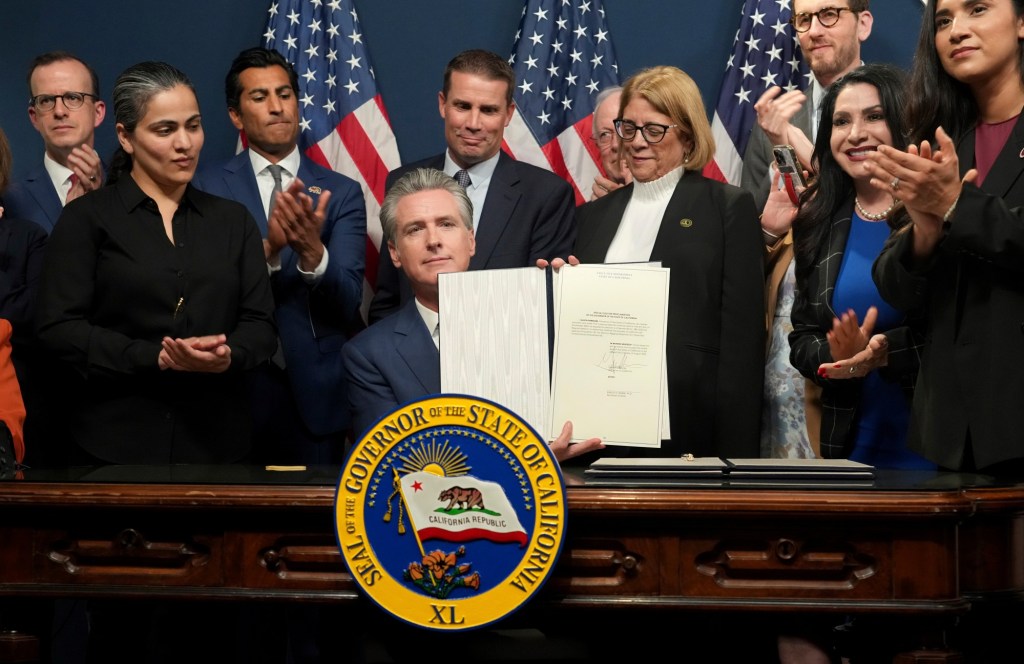
Californians were promised that the redistricting commission would take the power out of the hands of politicians and give it back to the people. Voters liked the idea because it meant fair maps drawn outside the backroom deals of Sacramento. Now the governor – who once praised that process – wants to dismantle it for his own gain. This fight is not about protecting democracy or standing up to Republicans. It is about Gavin Newsom and his rank personal ambition, and every independent voter in this state should see through it.
For years, California Democrats have held up the state’s independent redistricting commission as proof of their moral high ground. This despite opposing it from the beginning and trying to eliminate it through Prop 27 in 2010, the same year the process was expanded to include Congressional maps.
Fast forward to 2025, while accusing Republicans in Texas, Florida, and Tennessee of gerrymandering their maps into grotesque shapes, California leaders ignored their recent past of opposing an independent commission and bragged about the purity of a process that takes politics out of the drawing board. They rightly pointed to the commission as a model for protecting democracy. Now, suddenly, that same commission has become inconvenient and Gavin Newsom wants it sidelined.
This is not about California’s voters. It is not even really about congressional maps. It is about Gavin Newsom, the 2028 election, and a national Democratic electorate that has grown restless with passive leadership.
Newsom is not known for originality. He rarely invents the playbook. He relies on a cadre of savvy consultants who think several moves ahead and are willing to burn down old institutions if it helps their client win. The ends justify the means for these people. And now, those consultants see a Democratic Party base desperate for a fighter, someone who looks willing to stop at nothing to beat Republicans.
That is the point of Newsom’s redistricting gambit. He is using what is happening in Texas as an excuse to “bring the fight” to Republicans, even if that means dismantling the very commission Democrats once championed. By putting the commission on the chopping block, he is not so much attacking it as he is willing to sacrifice it in order to look like the aggressor.
The logic is simple. If voters approve his scheme, Democrats pick up more House seats and Newsom gets to brag about engineering a partisan power grab. If voters reject it, as polling suggests they might, Newsom still wins in the only way that matters to him. He gets to stand on the national stage in 2028 and say he tried, that he was willing to throw a punch even when it meant losing. It is political theater dressed up as policy.
The real tell is that Newsom does not actually care whether he wins or loses this ballot fight. In fact, initial polling suggests that the electorate is overwhelmingly against it. Either outcome boosts his brand. To Democratic primary voters in 2028, he can claim he stood up to Trump and the Republicans, that he was willing to break glass, that he never backed down. The commission is just collateral damage, a prop in a larger audition for the presidency.
So let us not pretend this is about fairness, democracy, or even congressional representation. Gavin Newsom is treating California’s maps the way he has treated nearly every policy issue in his career: as a stage set. The lines on the map are secondary. What really matters to him is the line on his résumé as a fighter.
At the end of the day this is not a partisan issue. Democrats will defend Newsom, Republicans will oppose him, but independents will decide the outcome. They should ask themselves one simple question: is this about fair representation for Californians, or is this about Gavin Newsom auditioning for president? The answer is obvious.
Lance Christensen is the vice president of education policy and government affairs at the California Policy Center and 2022 nominee for California Superintendent of Public Instruction. Jay Reed is a political consultant who works with candidates and on California-specific issues.
Originally Published:



